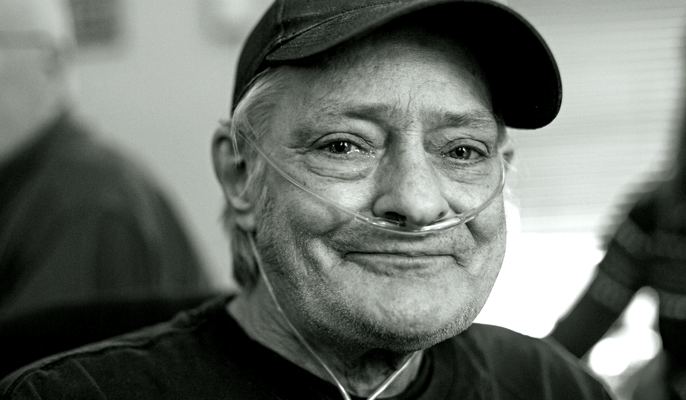ERIE'S ORIGINAL HOSPICE: INDEPENDENT AND NON-PROFIT.
The Phoenix symbolizes the human spirit's ability to rise above life's most painful moments.
(814) 456-6689
UNDERSTANDING PHYSICAL CHANGES
A CAREGIVER'S GUIDE
Some very distinct changes can be noted as your loved one's disease progresses. We feel that even though these changes can be stressful and emotionally painful for the caregiver, talking about what you may expect can ease your fears, allowing you to continue to give the same support you have provided all along.
NAUSEA
Nausea and/or vomiting may occasionally occur. It will help to:
Keep surroundings quiet and have the your loved one rest.
Use clear liquids only - broth, jello, tea, or soda may be helpful. Consider crackers or dry toast.
Keep the mouth fresh and clean at all times.
Talk to your Hospice Nurse about medication to reduce nausea.


CONSTIPATION
Constipation is a problem that many patients experience. The cause is multi-factorial and worsened by inactivity, pain medications, and decreased food and fluid intake. However, the body generally continues to produce waste products even though your loved one is not eating much. It will help to:
Offer fluids, juices, nectars or jello as tolerated.
Include fruits and vegetables if your loved one can tolerate them.
Encourage mild exercises, such as walking.
Let the Nurse know if the constipation continues - your loved one may need a stool softener and/or a laxative.
DIARRHEA
Diarrhea can occasionally be a problem. There may be stomach cramping as well as frequent watery stools. It will help to:
Continue to offer clear fluids.
Keep the skin as clean and dry as possible.
Alter the diet to include Bananas, Rice, Applesauce, and Toast
Inform the Nurse, as your loved one may need medication to control diarrhea.


INCONTINENCE
Incontinence may cause significant distress to someone who was previously independent.
Bed pans, adult diapers, and disposable or cloth bed pads.
Keep the diapers, pads, and linen changed as often as necessary.
Keep the skin clean and dry to prevent skin breakdown.
SHORTNESS OF BREATH
Shortness of breath, getting air in and out of the lungs, is a problem for seriously ill people. This can be frightening to your loved one (and to the caregiver). To help you should:
Help your loved on stay relaxed. Remain calm and try to calm your loved one.
Have your loved one sit up and lean forward with arms supported on overhead table or other item.
Raise the head of the bed or elevate your loved one using pillows.
Open a window if it is a cool day or use an oscillating fan to increase air circulation.
If a problem persists, notify the Hospice Nurse. Your loved one may need oxygen or medication.


DECREASED APPETITE
One of the most misunderstood and difficult things for families to deal with is a patient's lack of appetite or in many cases, no appetite.
As changes begin to take place during an end-stage illness, hunger and caloric requirements are greatly reduced. Nothing tastes good, cravings come and go, and liquids are frequently preferred to solids. This does not mean that eating should not be encouraged, but their preferences or lack of appetite should be respected. The following suggestions may be helpful:
Honor your loved one's request for certain types of food and do not be discouraged if they only eat a small portion.
Serve food in small portions on small plates so it's not overwhelming for your loved one.
Frequent small meals and snacks may be tolerated better than the traditional "three meals a day."
Concentrate on food or liquids higher in calories if less food is being eaten.
Serve food in a comfortable and relaxing atmosphere.
As illness and weakness progress, eating usually decreases. The body begins to shut down and digestion is reduced to conserve energy. This is not an uncomfortable process. Forcing your loved one to eat may cause additional physical distress, such as choking, nausea and vomiting, increased bowel movements, and more. Any questions or concerns can be discussed with the Hospice team.





